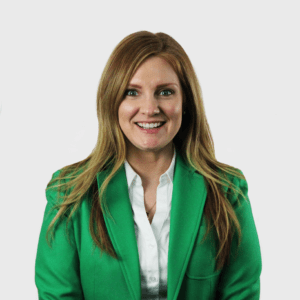Hot Technologies: New Infection-Fighting Linens
| BY JEFF WILLIAMS, PHD, BVSC, MRCVS |
| New infection-fighting linens A recently developed fabric treatment promises major progress in infection and odor control |
| Healthcare laundry protocols historically have relied on chlorine-based sanitizers to kill bacteria in bed linens and other fabrics. While chlorine is known as one of the best antimicrobial agents, its power is limited because it evaporates from untreated fabric soon after laundering. A revolutionary technology is making major strides in tackling this issue. HaloShield, a new patented antimicrobial technology, helps continuously kill bacteria and drastically reduce odor when applied to healthcare sheets and incontinence underpads, and continues protecting residents for the lifetime of the treated fabrics. In 2003, Mundelein, Ill.-based Medline Industries, Inc., partnered with Vanson HaloSource to develop HaloShield healthcare fabrics, which are grafted with the patented antimicrobial technology. HaloShield-treated fabrics employ N-halamine technology to create a durable coating that binds chlorine molecules used during a regular wash cycle to nearly any textile. The coating is actually rechargeable; that is, the antimicrobial properties of the chlorine are renewed each time the sheet is laundered in chlorine bleach. The HaloShield treatment maintains its ability to bind chlorine to the product throughout the fabric’s life cycle. Microbe-killing N-halamines were first attached to fabrics in the 1990s. N-halamine technology harnesses the power of chlorine to kill all known bacteria, viruses, fungi, and most parasites on solid surfaces and textile fibers. The technology is capable of reversibly binding powerful chlorine molecules onto the surface of a cellulose material such as cotton and rayon. HaloShield-treated fabric offers significant benefits. It quickly kills the broadest spectrum of germs, viruses, and bacteria. And its killing power can be recharged again and again through simple chlorine-based cleanings for the life of the material to which it’s attached. Numerous tests have been conducted on HaloShield using independent testing laboratories for validation and credibility. At the final test point of 70 launderings, the antimicrobial functionality of the HaloShield graft remained present after a significant amount of use. Human exposure tests also were conducted to ensure that HaloShield-treated fabrics would not irritate skin. The tests were run on human volunteers under the most extreme possibility-exposure to a wet swatch of HaloShield fabric for 24 to 48 hours. Hospital dermatologists examined all patients tested at 24 and 48 hours, and again three weeks after the initial exposure. The dermatologists concluded that there was no irritation potential from HaloShield-treated fabric at the normal exposure level. Unlike other antimicrobial agents, no known bacterium has ever developed a resistance to chlorine, even as new bacterial strains continue to develop. Independent tests have shown that HaloShield is effective in killing methicillin-resistant Staphylococcus aureus (MRSA) and other potentially deadly bacteria. One independent testing scheme simultaneously challenged test articles with three different bacteria (MRSA, vancomycin-resistant enterococci [VRE], and Klebsiella pneumoniae). The results demonstrated that HaloShield is effective against a broad spectrum of bacteria, including pathogens notorious for significant nosocomial infections. At ten minutes of contact, the HaloShield sample exhibited a 3.63 log reduction over the control sample-equivalent to a 99.97% kill. It is also mutation-resistant, addressing one of the most serious emerging infectious disease threats, which actually can be exacerbated by other commonly used surface-active antimicrobial technologies. Materials treated with HaloShield technology continue to be 100% effective for years, establishing a new threshold for price-performance and health protection for linens used in the long-term care setting. Jeff Williams, PhD, BVSc, MRCVS, is Chief Technology Officer for Vanson HaloSource, a bioscience company pioneering antimicrobial technologies for applications in healthcare, industrial, water treatment, and home markets. Prior to cofounding HaloSource, he was a professor of microbiology at Michigan State University, where he spearheaded several research programs in infectious diseases, including interdisciplinary studies funded by the National Institutes of Health and the World Health Organization. Medline licenses HaloShield technology from Vanson HaloSource, with exclusive rights to distribute HaloShield-protected hospital sheets, pillowcases, and reusable incontinence underpads in North and South America. For further information, phone Medline Industries at (800) 633-5463 or visit www.medline.com. To send your comments to the author and editors, please e-mail williams0905@nursinghomesmagazine.com. To order reprints in quantities of 100 or more, call (866) 377-6454. |
I Advance Senior Care is the industry-leading source for practical, in-depth, business-building, and resident care information for owners, executives, administrators, and directors of nursing at assisted living communities, skilled nursing facilities, post-acute facilities, and continuing care retirement communities. The I Advance Senior Care editorial team and industry experts provide market analysis, strategic direction, policy commentary, clinical best-practices, business management, and technology breakthroughs.
I Advance Senior Care is part of the Institute for the Advancement of Senior Care and published by Plain-English Health Care.
Related Articles
Topics: Articles , Technology & IT











